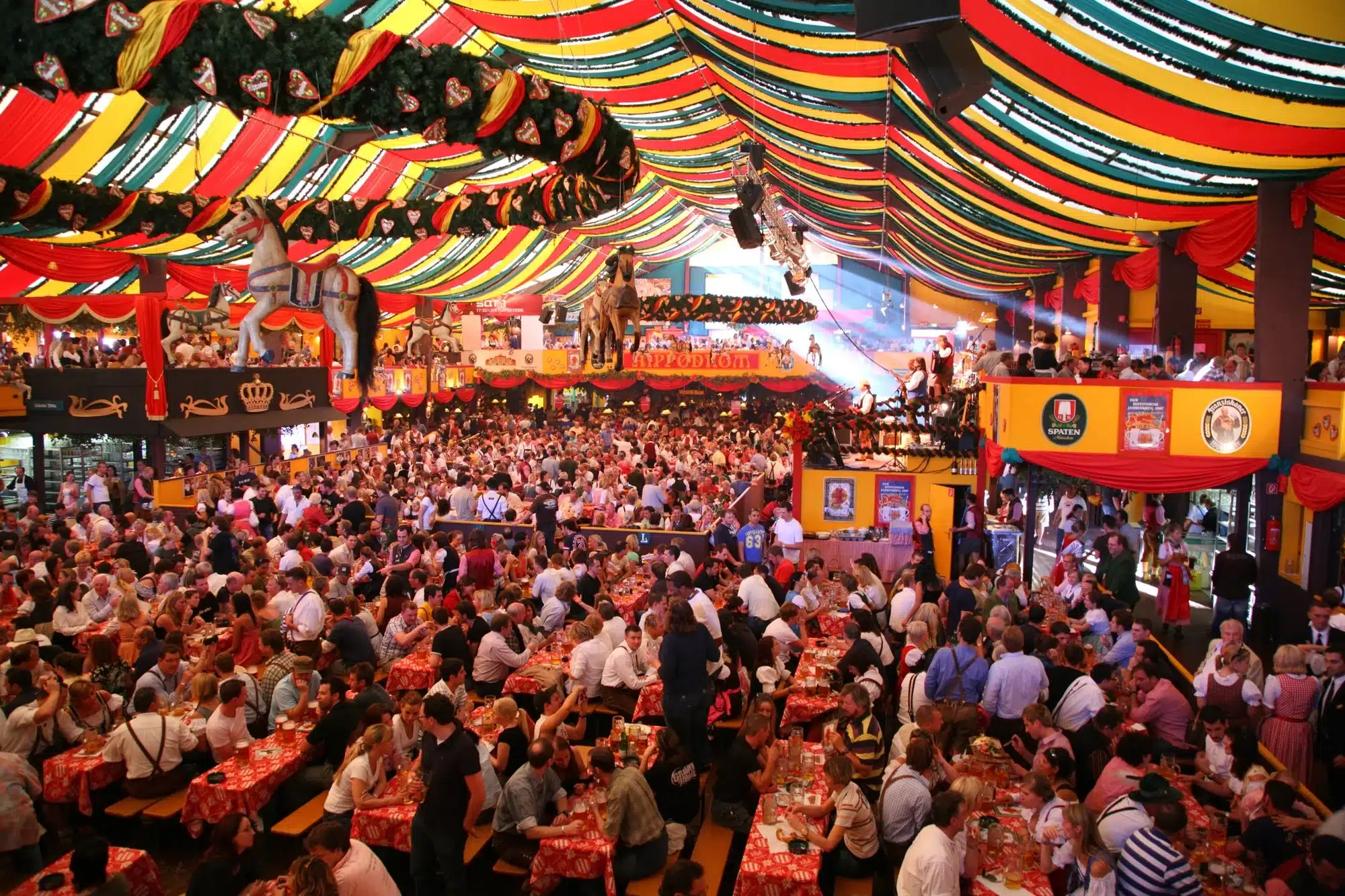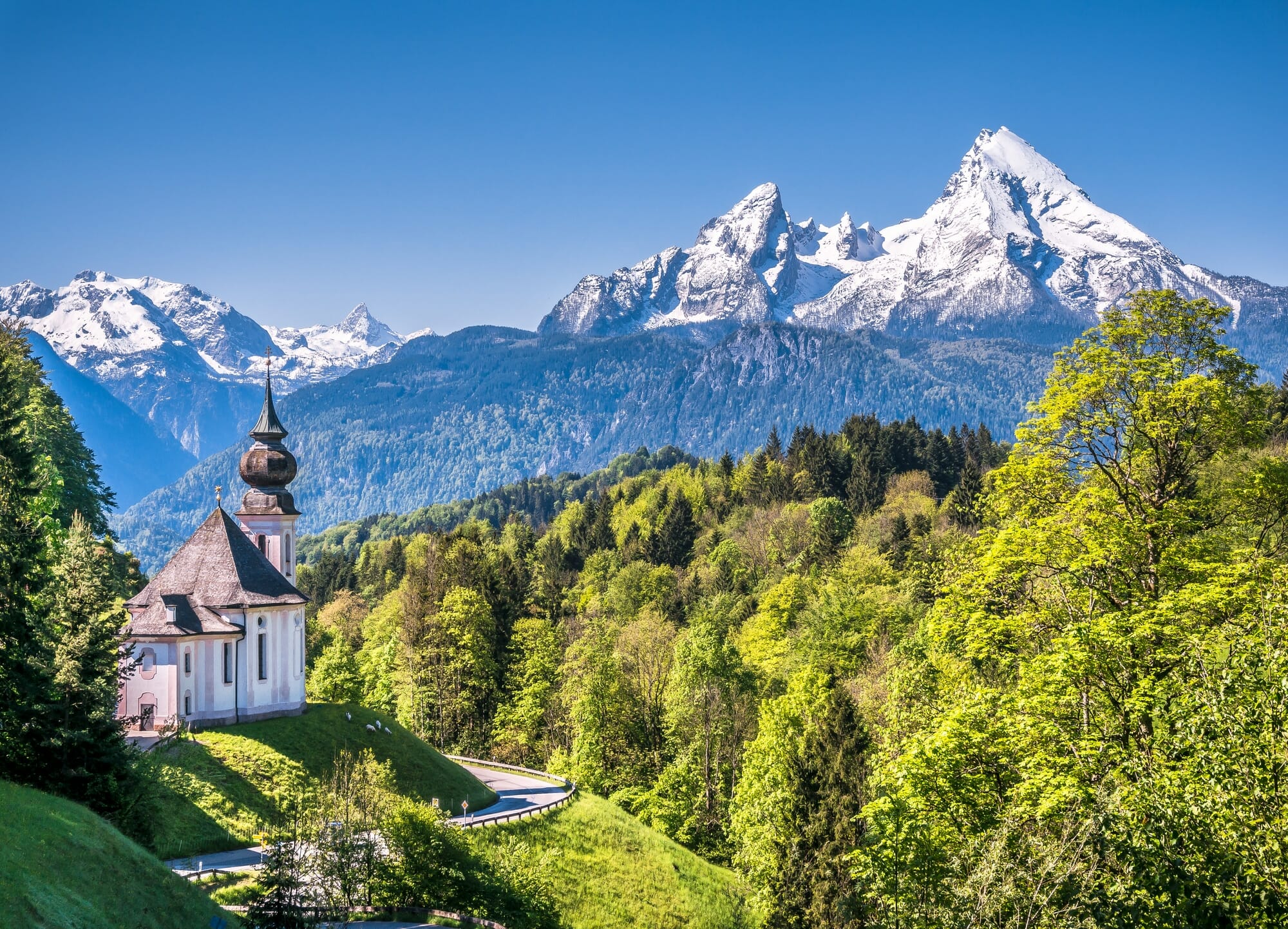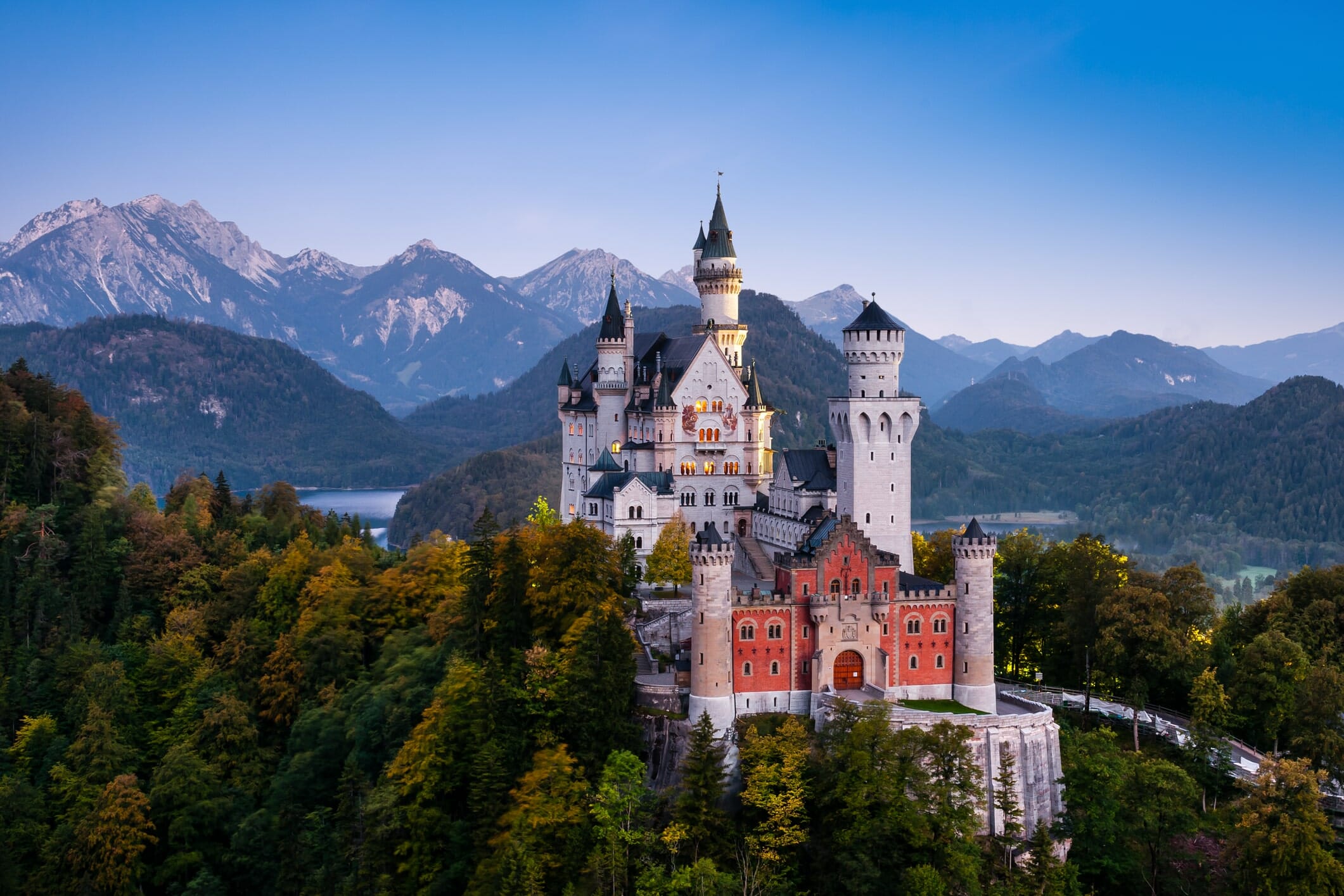UEFA Euro 2024: All you need to know about the European Football Championships in Germany
The UEFA Euro 2024 tournament, hosted by Germany, will kick off on June 14 and conclude with the final on July 14. The tournament’s opening match will feature Germany taking on Scotland in Munich on June 14, while the final will be held in Berlin.
Ten cities across Germany have been selected as venues for the tournament: Berlin, Cologne, Dortmund, Düsseldorf, Frankfurt, Gelsenkirchen, Hamburg, Leipzig, Munich, and Stuttgart. These cities will host a total of 51 matches, with 24 teams competing, divided into six groups.
The group stage will run until June 26, after which the 16-team knockout stage will commence on June 29. To qualify for the knockout stage, teams must finish in the top two of their group, with an additional four third-place finishers also advancing.
Here are the groups and teams for the UEFA Euro 2024 tournament
Group A:
Germany
Scotland
Hungary
Switzerland
Group B:
Spain
Croatia
Italy
Albania
Group C:
Slovenia
Denmark
Serbia
England
Group D:
Poland
Netherlands
Austria
France
Group E:
Belgium
Slovakia
Romania
Ukraine
Group F:
Turkey
Georgia
Portugal
Czech Republic
Visit the official website for the tournament here for more information
UEFA Euro 2024: Group Stage Key Highlights
Slovakia Stuns Belgium: In a major upset, Slovakia defeated the highly-favored Belgium 1-0 in the opening match of Group E. This unexpected victory set the tone for what promises to be an exciting and unpredictable tournament.
France Overcomes Austria’s Challenge: France, while favored, faced a tough challenge from Austria in Group D. The match was closely contested, with France emerging victorious. However, the win was marred by concerns over Kylian Mbappé, who may have suffered a broken nose during the game.
Romania Overpowers Ukraine: Group E witnessed another surprising result as Romania defeated Ukraine 3-0. This marks Romania’s first win in the European Championships since 2000, signaling a potential resurgence for the team.

Christian Eriksen returns to the European Championships
Christian Eriksen’s Triumphant Return: Christian Eriksen made an emotional return to the European Championships, three years after his cardiac arrest. He scored for Denmark in their 1-1 draw against Slovenia, marking a significant milestone in his career and providing an inspirational moment for fans worldwide.
England’s Narrow Win: England secured a narrow 1-0 victory over Serbia in a tightly contested match. While the win adds three points to England’s tally, it also highlights the competitive nature of this year’s tournament, where no team can be underestimated.
UEFA Euro 2024 Germany stadiums and fixtures
As Germany prepares to host the UEFA Euro 2024, ten remarkable stadiums across the country are set to welcome fans from all over the world. Each venue, steeped in its own history and modernized for the demands of contemporary football, will host a series of exciting matches that promise to deliver unforgettable moments. From the iconic Olympiastadion in Berlin to the state-of-the-art Leipzig Stadium, these arenas are ready to showcase the pinnacle of European football. Below is a detailed look at each stadium, along with the fixtures they will host during the tournament.
Olympiastadion – Berlin, Germany
The Olympiastadion in Berlin, inaugurated in 1936, has a capacity of 71,000. It is the oldest continuous venue used for Euro 2024 and holds significant historical importance, having been built for the 1936 Olympic Games during the rise of Adolf Hitler and the Nazi party. In modern times, it was a venue for the 2006 FIFA World Cup and is the home base for Bundesliga side Hertha Berlin.

Olympiastadion will host six fixtures, including Spain vs. Croatia on June 15, Poland vs. Austria on June 21, Netherlands vs. Austria on June 25, a Round of 16 match on June 29, a quarterfinal on July 6, and the tournament final on July 14.
Cologne Stadium
Cologne Stadium, with a capacity of 43,000, was inaugurated in 2004. This stadium is the third rebuild on the site since 1923, with the latest reconstruction completed just in time for Germany’s hosting of the 2006 FIFA World Cup. The venue is home to the local Bundesliga team, FC Cologne.

Cologne Stadium will host five fixtures, including Hungary vs. Switzerland on June 15, Scotland vs. Switzerland on June 19, Belgium vs. Romania on June 22, England vs. Slovenia on June 25, and a Round of 16 match on June 30.
Munich Football Arena
The Munich Football Arena, also known as Allianz Arena, is a modern stadium with a capacity of 66,000. Inaugurated in 2005, it is renowned for its striking exterior of plastic panels that change color during night matches. The venue is home to Bayern Munich, Germany’s richest and most successful football club. Allianz Arena was the sole German stadium used during the COVID-delayed Euro 2020, which was co-hosted by 11 European nations.

Munich Football Arena will host six matches, including the tournament opener between Germany and Scotland on June 14, and a semifinal on July 9. Additional fixtures include Romania vs. Ukraine on June 17, Slovenia vs. Serbia on June 20, Denmark vs. Serbia on June 25, and a Round of 16 match on July 2.
Stuttgart Arena
Stuttgart Arena, also known as MHP Arena, has a capacity of 51,000 and was originally opened in 1933. The stadium has undergone several rebuilds and has a rich history of hosting international football events, including the 1974 FIFA World Cup, UEFA Euro 1988, and the 2006 FIFA World Cup.

The arena is the home ground of Bundesliga club VfB Stuttgart, which finished second in the 2023/24 season. For Euro 2024, Stuttgart Arena will host five matches, including Slovenia vs. Denmark on June 16, Germany vs. Hungary on June 19, Scotland vs. Hungary on June 23, Ukraine vs. Belgium on June 26, and a quarterfinal on July 5.
Frankfurt Arena
Frankfurt Arena, also known as Waldstadion, has a capacity of 47,000 and was inaugurated in 1925. Despite its nearly 100-year history, the stadium has evolved with modern upgrades, including a futuristic retractable roof and updated seating. Home to Bundesliga club Eintracht Frankfurt, which finished sixth in the 2023/24 season, the stadium boasts a retractable roof that folds into a giant scoreboard.

For Euro 2024, Frankfurt Arena will host five matches: Belgium vs. Slovakia on June 17, Denmark vs. England on June 20, Switzerland vs. Germany on June 23, Slovakia vs. Romania on June 26, and a Round of 16 match on July 1.
Gelsenkirchen – Arena AufSchalke
Arena AufSchalke, also known as Veltins-Arena, was inaugurated in 2001 and has a capacity of 50,000. Located in Gelsenkirchen, the smallest of the Euro 2024 host cities, the stadium is home to FC Schalke 04. Despite the club’s relegation to the second division in 2021, it continues to draw sold-out crowds. The venue features a retractable roof and pitch and is one of Europe’s most modern multiuse facilities. It hosted the 2004 UEFA Champions League Final and five matches during the 2006 FIFA World Cup.

Arena AufSchalke will host four matches: Serbia vs. England on June 16, Spain vs. Italy on June 20, Georgia vs. Portugal on June 26, and a Round of 16 match on June 30.
Düsseldorf Arena
Düsseldorf Arena, also known as Merkur Spiel-Arena, was inaugurated in 2004 and has a capacity of 47,000. Unlike many other Euro 2024 venues, it was not used during the 2006 FIFA World Cup. The arena, situated near the Rhine River, is home to the second-division club Fortuna Düsseldorf and is noted for its architectural design, featuring a retractable roof and a heating system for winter matches.

Düsseldorf Arena will host five fixtures: Austria vs. France on June 17, Slovakia vs. Ukraine on June 21, Albania vs. Spain on June 24, a Round of 16 match on July 1, and a quarterfinal on July 6. The arena’s perfectly square symmetry and modern facilities make it one of Europe’s most impressive sports venues.
BVB Stadion Dortmund
BVB Stadion Dortmund, inaugurated in 1974, has a capacity of 62,000. It is the home of Borussia Dortmund, who recently competed in the UEFA Champions League final on June 1, 2024. Originally built for the 1974 FIFA World Cup, the stadium also hosted six fixtures during the 2006 FIFA World Cup. With its large capacity, it is one of the largest venues for Euro 2024.

For Euro 2024, BVB Stadion will host six matches: Italy vs. Albania on June 15, Turkey vs. Georgia on June 18, Turkey vs. Portugal on June 22, France vs. Poland on June 25, a Round of 16 match on June 29, and a semifinal on July 10. A standout feature of the stadium is the Yellow Wall, where Dortmund fans famously gather to display their yellow and black flags.
Leipzig Stadium
Leipzig Stadium, also known as Red Bull Arena or Zentralstadion, was inaugurated in 2004 and has a capacity of 42,000. It is the largest football arena in the former East Germany and is home to Bundesliga club RB Leipzig. The original Zentralstadion, opened in 1956, was one of Europe’s largest stadiums at the time, holding over 100,000 spectators. The revamped stadium hosted five games during the 2006 FIFA World Cup.

Leipzig Stadium will host four matches: Portugal vs. Czechia on June 18, Netherlands vs. France on June 21, Croatia vs. Italy on June 24, and a Round of 16 match on July 2.
Volksparkstadion Hamburg
Volksparkstadion Hamburg, inaugurated in 2000, has a capacity of 49,000. Home to Hamburg SV, a founding Bundesliga club that was relegated to the second division in 2018, the stadium also served as the home ground for Shakhtar Donetsk during the 2023/24 UEFA Champions League due to the Russia-Ukraine war. The venue hosted multiple matches during the 2006 FIFA World Cup.

Volksparkstadion will host five matches: Poland vs. Netherlands on June 16, Croatia vs. Albania on June 19, Georgia vs. Czechia on June 22, Czechia vs. Turkey on June 26, and a quarterfinal on July 5.
Top Activities for in Germany During UEFA Euro 2024
Travelers can make the most of their visit to Germany during the European football championships, experiencing both its vibrant culture and historical depth. Here are some of our top picks.
Explore Historic and Cultural Landmarks
Germany’s host cities offer a wealth of historic and cultural landmarks. In Berlin, visitors can explore the Brandenburg Gate, the Berlin Wall Memorial, and Museum Island, providing deep insights into the city’s rich history. Munich boasts attractions such as Marienplatz, the Nymphenburg Palace, and the Hofbräuhaus beer hall, which highlight the city’s architectural and cultural heritage.

Hamburg skyline
Hamburg’s Speicherstadt warehouse district, Miniatur Wunderland, and St. Michael’s Church offer unique experiences, while Frankfurt’s Römerberg, Goethe House, and the modern skyline blend the old with the new. Cologne’s Gothic cathedral, Roman-Germanic Museum, and vibrant old town are must-see destinations for any traveler.
What to see in Berlin, more than 30 travel ideas
Munich. The Guide To What You Must See In Germany
Experience Local Cuisine and Beer Culture
Germany is renowned for its hearty cuisine and beer culture. Travelers should try local specialties such as bratwurst and currywurst, available at street vendors and restaurants across the country. Freshly baked pretzels are a Bavarian staple, while schnitzel is a classic dish found nationwide.

Oktoberfest in Munich
Germany’s beer culture is celebrated in numerous breweries and beer gardens, where visitors can sample a wide variety of brews. Munich, in particular, is famous for its beer halls and Oktoberfest, which, although held in September and October, offers a quintessential Bavarian experience.
The famous Oktoberfest in Munich
Participate in Outdoor and Recreational Activities
Germany’s diverse landscapes provide ample opportunities for outdoor and recreational activities. The Black Forest in southwestern Germany is ideal for hiking, cycling, and scenic drives, offering picturesque views and serene environments. The Rhine Valley is perfect for river cruises, where travelers can enjoy the sight of vineyards, medieval castles, and charming villages.

Idyllic mountain landscape in the Bavarian Alps, Berchtesgadener
In Bavaria, the Alps offer hiking and skiing opportunities, as well as breathtaking mountain vistas. These natural attractions complement the urban excitement of the Euro 2024 host cities, providing a well-rounded travel experience.
Camping in Germany: A road-trip through a great country
Visit Iconic Castles and Memorials
Germany is home to numerous iconic castles and memorials that are worth visiting. Neuschwanstein Castle, near Munich, is a fairy-tale structure that inspired Disney’s Sleeping Beauty Castle.

Famous Neuschwanstein Castle in Bavaria, Germany, before sunrise
Historical and solemn sites such as the Dachau Concentration Camp near Munich and the Holocaust Memorial in Berlin offer important historical context and reflection. These sites, alongside other historic landmarks, allow travelers to gain a deeper understanding of Germany’s complex history.
Castles in Germany, we are selected for you
Best places to visit in Germany




